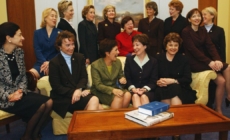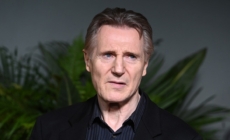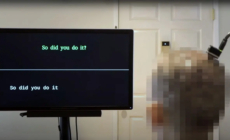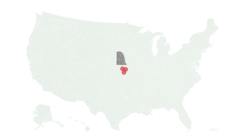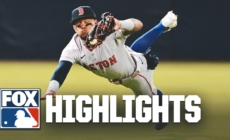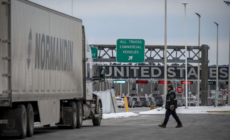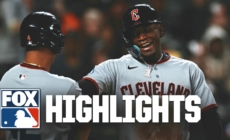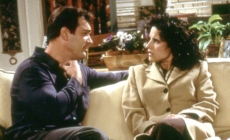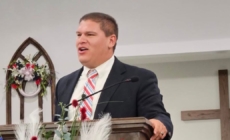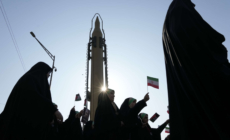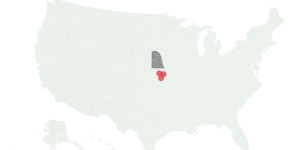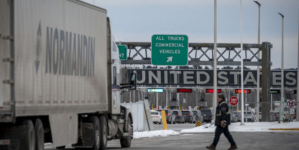-
Contributor: Why California leads the way toward parity for women in elected office - 13 mins ago
-
‘Naked Gun’ and ‘Airplane!’ director calls out Liam Neeson-led remake - 20 mins ago
-
AI system restores speech for paralyzed patients using own voice - 25 mins ago
-
Millions in Two States Warned To Limit Outdoor Activity - 39 mins ago
-
Red Sox vs. Rays Highlights | MLB on FOX - 47 mins ago
-
Peruvian ex-President jailed for money laundering as Brazil grants diplomatic asylum to his wife - 50 mins ago
-
US Citizen Detained After Visiting Canada: ‘Treated Like a Criminal’ - about 1 hour ago
-
Orioles vs. Guardians Highlights | MLB on FOX - 2 hours ago
-
‘Seinfeld’ star says ‘very religious’ parents ‘hated’ his work - 2 hours ago
-
Kidnapped U.S. pastor rescued in South Africa after ‘high-intensity shootout’ - 2 hours ago
Good times, bad times but overwhelmingly good
Tim SImons was on Led Zeppelin’s crew at City Hall in Salisbury, UK, on December 20, 1971, and he got chatting to drummer John Bonham at the post-concert meal. “I know it’s a bit cheeky but any chance of a lift home?” he wondered. Bonham asked why, and Tim, 17, said, “Well, you’re the only man I know with a white, soft-top Rolls-Royce Corniche. I live on a council estate and I would feel great if you took me home.” So Bonham did.
But when Martin Pottinger joined the roadies for Led Zeppelin’s month-long, 21-show, eighth North American visit in mid-1972, Bonham took a dislike to him. Pottinger tried to steer clear, finding Bonham to be a nasty drunk, a big guy with big hands looking to whack people. “I think he thought I was some little twat, which is fine because I thought he was a complete arsehole and not a nice person at all.” Bonham tried to throw Pottinger’s suitcase out a window, tossed a bucket of water on his hotel bed and finally got him fired.
Encounters differ, then, and these are two poles-apart memories from the band’s beginning in 1968 to its demise in 1980, via Scandinavia, Britain, the United States, Japan, Australia and New Zealand, and the reunions at Live Aid in Philadelphia in 1985 and the 02 Arena in London in 2007. Some 750-plus fans contributed to this 400-page oral history of one of rock music’s greatest bands, mostly from the audiences, of course, but also the fortunate few who actually met Robert Plant, Jimmy Page, John Paul Jones and John “Bonzo” Bonham.
Naturally, it’s the close-up encounters between the fans and their musical gods that are invariably the most readable. Phyllis Fox, 16, and her girlfriends were outside the Convention Hall at Asbury Park in New Jersey, US, on August 16, 1969, waiting for the band’s limousine to arrive. One of her friends was “tall, blonde and gorgeous”, and when the car drove in, the rear window rolled down and Jimmy Page reached out. “She hopped in the limo and about 20 minutes later came over to us and whispered in my ear, ’I just gave Jimmy Page a blowjob.’ Then she shouted it out for everyone to hear!” recounts Phyllis. There are a couple of similar tales about the imperious Messrs. Page, Plant, their peckers and compliant girls.
Craig Barrows saw the band at the Kinetic Playground in Chicago, Illinois, US, on February 7, 1969, and he was in the men’s toilet taking a leak when Plant came in and peed next to him. “How do we sound tonight?” the singer asked. He also bummed a cigarette. “My moment next to a hero!” recalls Craig. At the same gig, Bob Hollis and his friend were so close to Page on stage that he was sweating on them.
And Stuart Langford reckons he saved Page from very nearly electrocuting himself at De Montfort Hall, Leicester, UK, on March 13, 1969, when, pre-gig, Langford found the guitarist kneeling on stage, hardly able to see in the dark, reaching under the boards, feeling around, trying to wedge the bare ends of his amplifier cable into a 15-amp socket, creating the odd spark, a “zzzzzzzz” sound and the smell of singeing. Langford literally pulled Page away, saying “Jimmy, don’t do that!” They lent him a plug that he promised to return but didn’t.
Led Zeppelin uber-fan and chronicler Dave Lewis established the Tight But Loose fanzine in 1978 and in its 40-plus years it reached like-minded enthusiasts in more than 30 countries. Lewis saw the band 15 times and has contributed a foreword to Houghton’s book, recounting how the band emerged out of the remnants of the Yardbirds, who split in summer 1968, leaving guitarist Page with the rights to the name and the task of assembling a new band.
Page travelled to the Midlands to see a recommended singer named Robert Plant, and it is the then-unknown Plant who is the subject of the book’s first fan contribution, in 1965 no less. Dave Braddock recalls seeing him perform at the Club Lafayette in Wolverhampton, UK, which was primarily a discotheque but occasionally hired local bands. Braddock doesn’t remember the name of Plant’s band, and says the singer belted out numbers a bit too loudly for a crowd that preferred the Tamla Motown sound. He mainly distinguished himself with yellow trousers with a large red overcheck, thus quickly dubbed as his “Rupert Bear” pants.
Derek Thomas, age 14, also saw “Bob” Plant in 1965, at St. John’s Hall, Stourbridge, in the Midlands. Plant was fronting Black Snake Moan, named after a Blind Lemon Jefferson song, and playing blues and R&B. Derek also saw him at a New Year’s Eve gig in Dudley Town Hall, UK, where “Bob” and Roy Harper serended the attendees with “Auld Lang Syne”.
Another early encounter comes from Peter Smith who saw Plant’s band named Listen, at The Woolpack in Wolverhampton in 1966. Listen became Band of Joy with Plant singing and John Bonham on drums, and they played frequently around the Midlands. This was the year that top session guitarist Page joined the Yardbirds, first on bass then guitar after Jeff Beck left.
On August 18, 1968, the four members of what would become Led Zeppelin met in a basement below a record shop in Gerrard Street, London, and John Paul Jones, familiar to Page on London’s session musician circuit, said: “We all met up in this little room to see if we could stand each other.” They played their first show, as The New Yardbirds, at the Teen Club, in a school gymnasium, Gladsaxe, Denmark, on September 7, 1968.
Their second show, at an unknown venue in Stockholm, Sweden, on September 12, was curtailed when the speakers shut down, and after another show the same night in the Pop Club in Stockholm, a reviewer suggested that “Robert Planto’s (sic) dancing needed work”. The short tour concluded on September 15 at Stjarscenen Club in Gothenburg, Sweden.
From October 4-19 The New Yardbirds played in Newcastle, London and Liverpool before debuting as Led Zeppelin at the University of Surrey in Guildford on October 25, 1968. Early UK dates were at the Fishmongers Arms Hall in Wood Green, The Toby Jug in Tolworth, Farx Club at The Northcote Arms in Southall and the Nottingham Boat Club.
Unfortunately, but unsurprisingly, there is almost nil record of these early days. But on December 26, the band began its first US tour, and now the fans’ comments start to flow. The vast majority are adulatory, telling how the band, both live and on record, changed people’s lives, were a religious experience, blew the roof off, et cetera. Some unimpressed malcontents pop up among the euphoria and there were disastrously sloppy shows, but only a tiny minority.
So, the fans recall the thrills and spills as Led Zeppelin stormed the rock world. Memories range from short and bland (Plant spotted down the high street in his wellies! Plant patted my dog!) to great detail. Here we have it all (over and over again) – clubs and enormodomes, electric atmospheres, ear-ringing marathon shows with acoustic interludes, rain and risk of electrocution, the odd riot, vibrating balconies, drum solos by stick and by hand, double-neck and triple-neck guitars, violin bows, the theremin and gong, rock ’n’ roll medleys, lasers, acid, weed, tight trousers and cock rock, 8-track tapes and ticket queues, and squeezed lemons.
Here’s one of the best recollections – at City Hall, Salisbury, Wiltshire UK, on December 20, 1971, Susan Hayward and her husband Roger had seats because she was six months pregnant. She had never ever heard anything so loud. “I swear you could feel the force of the sound against your face.” Her baby started kicking wildly and did so for the whole show, though there was some relief during “Stairway to Heaven”. Later that baby, Justin, could impress friends by telling them he had been to a Led Zeppelin concert, albeit in the womb.
Repetitive, yes, and even rather juvenile at times, but somehow a very compelling read.
Your Budapest Times correspondent Christopher Maddock (aka Osterberg) was leafing through “Led Zeppelin: Whole Lotta Love, A People’s History” and got a shock to find himself turning up on Page 97. His unwitting contribution was a comment that had originally appeared on the Led Zeppelin website a decade or so ago, when he pointed out the irony of the band listing all their concerts alongside the hope that photos, recordings, et cetera of shows would surface, a bit of a forlorn hope considering that 30 years or so earlier they had been actively combatting illicit live recordings, mainly to prevent rip-off bootleggers but also netting fans who simply required a personal souvenir of a concert. Here is his account:
I WAS THERE: CHRISTOPHER MADDOCK
Born in Cornwall in 1950, I started going to UK rock concerts and festivals in about 1968. One of my first was the Bath Festival of Blues in 1969, followed by the Shepton Mallet three-day event in 1970, the Bath Festival of Blues and Progressive Music. I was a junior reporter on The Kentish Times and I managed to get in the press area in front of the stage. Led Zeppelin followed Flock on stage. Flock were obviously very stoned and their set was cut a bit short, much to their stoned bemusement. This apparently happened on the orders of the Zeppelin team, who wanted Zeppelin on stage at their preferred time of dusk. While Zeppelin played, members of their crew continually jumped into the packed press area and barged through to rip cassettes out of cassette recorders that they had spotted, with no argument permitted. I suppose that was fair enough in a way, with bands’ concerns about bootlegs.
On Led Zeppelin’s website on the page referring to the Shepton Mallet show, manager Peter Grant is quoted as saying: “Some people were trying to videotape the Bath festival and they’d already been told beforehand they couldn’t, so I had no qualms about throwing a bucket of water on to the tape machine which blew the whole lot up. Whoosh! It made a horrible smell and then it melted.” I did not see this incident, metres as I was from the stage. Ah, the wisdom of hindsight. It would be great now, wouldn’t it, to have all those destroyed video and casette tapes.
(Subsequently, 17 minutes of very good 16mm footage backstage and on stage at Bath 1970 has emerged on YouTube, also two hours and 11 minutes of dodgy audio – editor.)
Source link
